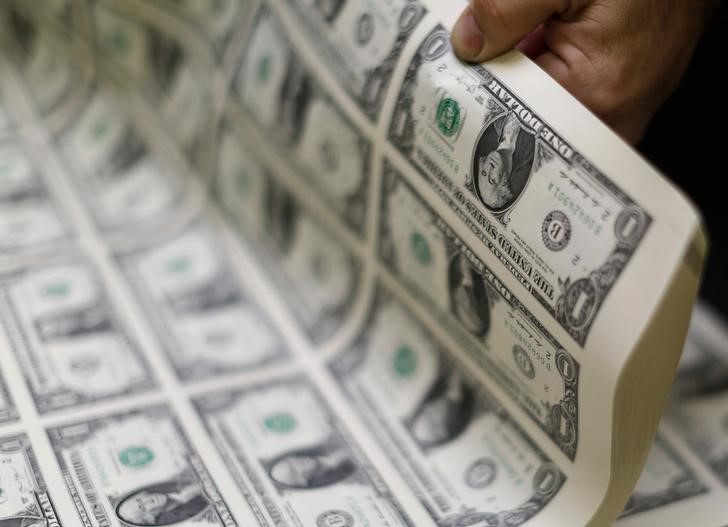* Dollar benefits as fresh ECB easing prospects hurt euro
* Trading subdued with U.S. markets shut for Thanksgiving holiday
* Aussie hit by surprisingly weak domestic investment data (Updates throughout)
By Shinichi Saoshiro and Ian Chua
TOKYO/SYDNEY, Nov 26 (Reuters) - The dollar was back on a bullish footing on Thursday, dusting off its latest setback helped by upbeat U.S. data and monetary easing expectations that dragged down the euro.
The dollar index .DXY was steady at 99.768 after scaling an 8-1/2-month peak of 100.170 following strong U.S. manufacturing output and business investment plan numbers on Wednesday that reinforced the case for the Federal Reserve to raise interest rates.
The index sunk as low as 99.312 the day before in the wake of rising geopolitical tensions following the downing of a Russian warplane by Turkey that led investors to cut crowded long positions.
The euro was shaky, having slid to its lowest in more than seven months after ECB officials told Reuters they were considering options such as whether to stagger charges on banks hoarding cash or to buy more debt, ahead of next week's policy review.
"The proximate cause has been a Reuters report suggesting that the ECB is looking at a tiered system for the negative deposit rates to be charged to banks posting excess cash at the central bank," said Ray Attrill, global co-head of FX strategy at National Australia Bank.
The euro skidded as far as $1.0565 EUR= , reaching a low not seen since mid-April. It last traded at $1.0618. Against the yen, it touched a seven-month low of 129.77 EURJPY=R before edging back to 130.21.
"The euro slid as it is easier for the market to react on speculation prior to the actual event, in this case the ECB policy meeting on Dec. 3," said Daisuke Karakama, market economist at Mizuho Bank in Tokyo.
Karakama said a comparable situation was the ECB imposing negative interest rates in June last year, which caused a prolonged downturn by the euro. But he said that the currency's decline was likely to be shorter in duration this time.
"The key difference with last year is expectations towards the Fed. In 2014, focus was simply on the Fed normalising policy. But now it is about how actively it will continue to hike - there are even concerns it could stop after delivering the first hike," Karakama said.
The dollar was little changed at 122.62 yen JPY= after pulling away from an overnight low of 122.26.
The Australian dollar was a noticeable mover in an otherwise subdued session due to U.S. markets being shut for the Thanksgiving Day holiday. The Aussie was down 0.3 percent at $0.7231 after surprisingly weak investment data dealt a blow to Australia's economic growth prospects. (Editing by Jonathan Oatis and Jacqueline Wong)
